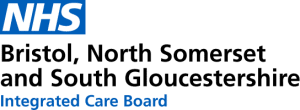Inclusivity in Stroke Self-Management Support (ISSMAS): Co-designing resources to improve self-management by black African and Afro-Caribbean communities living with stroke in the UK
Funding
National Institute for Health and Care Research (NIHR) Research for Patient Benefit (RfPB) Ref. NIHR204975.
What is the problem?
Black people are more likely to have a stroke than white people and experience stroke at a younger age. They are especially affected by conditions such as sickle cell disease and diabetes, which increase their stroke risk.
Yet BPLS describe not receiving the right kind of information and advice to help them (i) manage their health effectively, and (ii) understand how to reduce their chance of another stroke.
This situation is partly related to the culturally non-inclusive ways information is presented and distributed, and poor communication with health and care professionals.
Introducing better materials which meet the needs of BPLS and are more accessible could greatly improve the health journey and wellbeing of BPLS, tackle some of the inequalities they face, and reduce costs to the NHS.
What is the aim of the research?
Our project aims to find out from black people living with stroke (BPLS) what information and advice would best help them manage their health following a stroke and to work with BPLS and health and care professionals (HCPs) to produce new materials to meet BPLS’s needs.
How will this be achieved?
We will use an approach called Experience-Based Co-design in a step-by-step process.
We will interview up to 24 BPLS with differing backgrounds and experiences from Bristol and London to understand their priorities for information and advice.
We will then bring together separate groups of 10 BPLS and 10 HCPs experienced in supporting people after a stroke to discuss what was found in the interviews and confirm priorities.
Then, collaborating as equal partners, two joint teams of BPLS and HCPs will plan materials to respond to the priority areas. One
team will focus on BPLS directly and the other on HCPs, to help improve how they communicate and share information and advice.
The materials may include short films, leaflets and/or online guidance; their final format will only become clear through our co-design work. The materials will be produced professionally.
We will check back with our co-design teams, other project partners e.g. community-based organisations, and our Patient and Public Involvement (PPI) Group that they are acceptable and likely to have an impact.
BPLS are at the heart of our project. BPLS highlighted the need for this work during an earlier study. BPLS are represented on the project and co-design teams. Our PPI Group (BPLS and carers) has worked with us since 2019 and helped develop our project proposal.
The materials produced and learning from our project will be available to partner organisations immediately. In follow-on work we intend to implement and test the materials to find out their effectiveness and how they can be developed and improved for future distribution.
Who is leading the research?
Dr Joanna White, Senior Research Fellow, University of the West of England.
Further information:
For more information or to get involved in this project, email bnssg.research@nhs.net.
The views expressed are those of the author(s) and not necessarily those of the NIHR or the Department of Health and Social Care.

